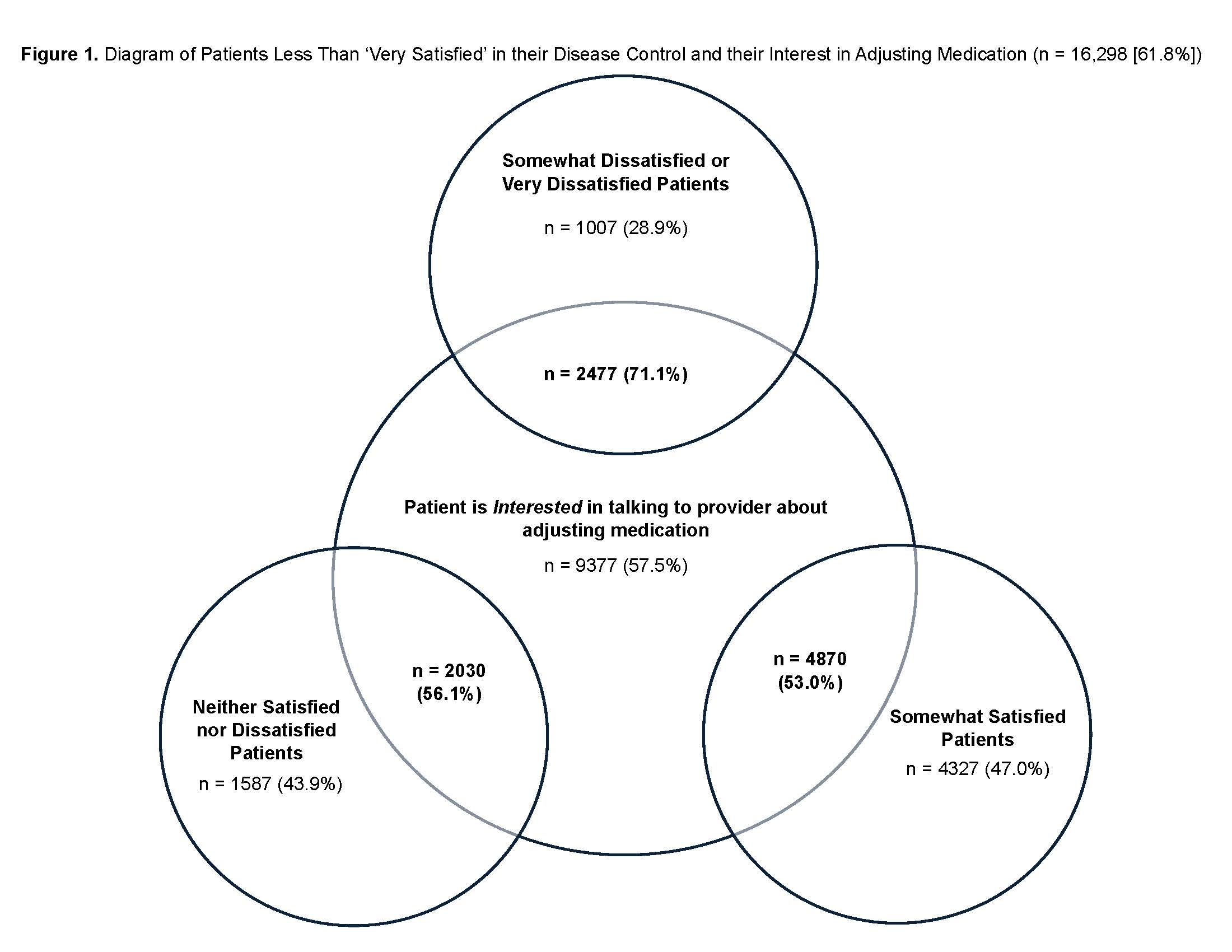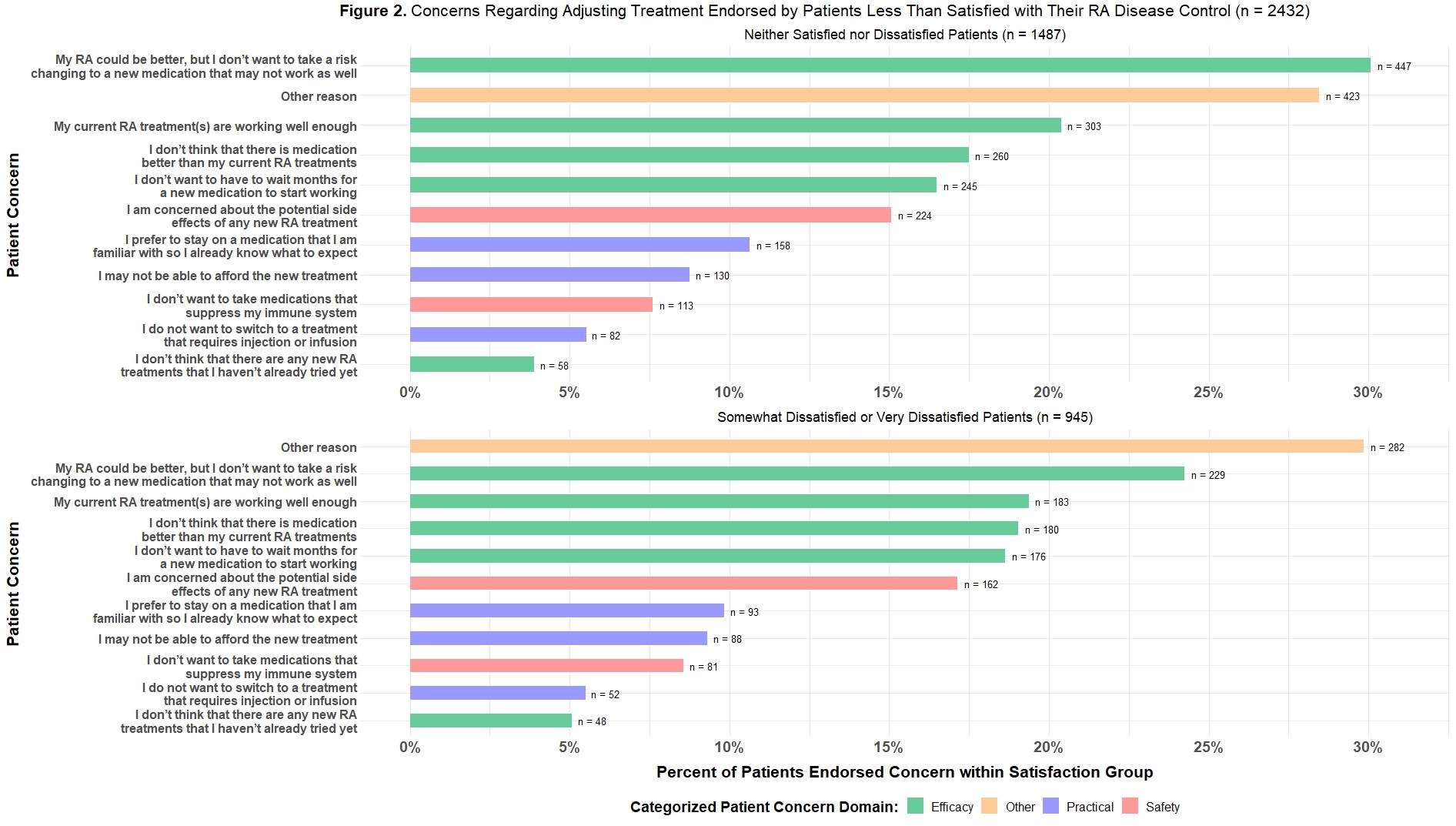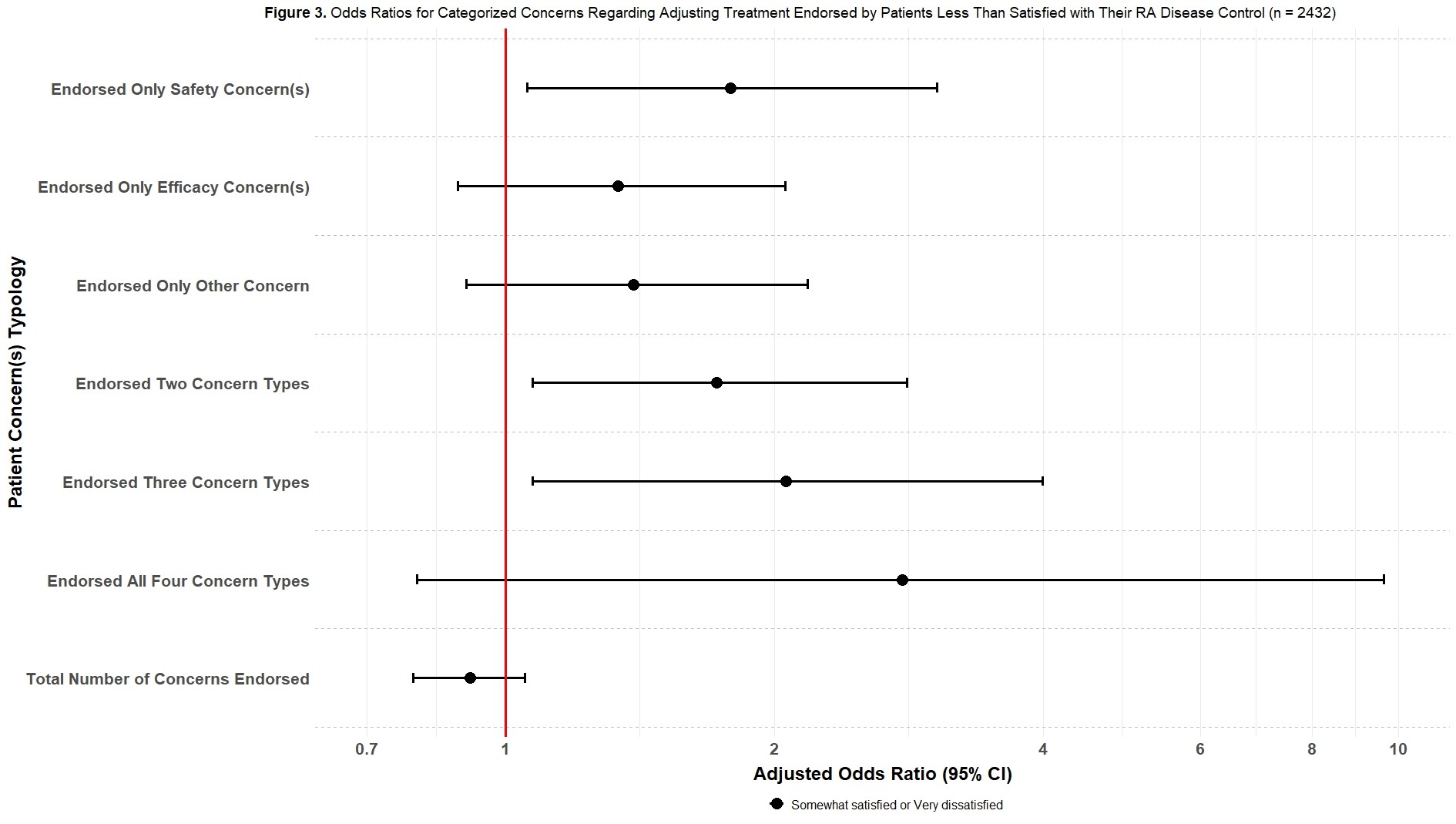Session Information
Session Type: Poster Session C
Session Time: 10:30AM-12:30PM
Background/Purpose: People with rheumatoid arthritis (RA) often hesitate to adjust their treatment due to concerns about medication risks and benefits. This study investigates RA patients’ satisfaction with their disease control, as well as their interest and concerns regarding treatment changes.
Methods: In 2023-4, a web-based survey was administered to RA patients as part of routine check-in procedures within offices of community rheumatologists in the Excellence Network in Rheumatology (ENRGY), a practice-based research network. The survey assessed patients’ satisfaction with current disease control, interest in discussing RA medication changes with their provider, and treatment adjustment concerns. We hypothesized that patients’ concerns about adjusting their treatment—categorized into safety, efficacy, practical, and other domains—would differ significantly between varying levels of patient dissatisfaction. Binary logistic regression analyzed concerns by dichotomized dissatisfaction levels, providing odds ratios (OR) and p-values.
Results: Of 26,377 respondents with RA, 73.0% were “very satisfied” (38.1%) or “somewhat satisfied” (34.9%) with their current RA disease control. Among the 61.9% who were less than “very satisfied,” 34.0% were “somewhat interested” and 23.4% were “very interested” in discussing medication changes with their provider, yet half of them (54.3%) had not done so in the last six months. Of the 16,298 less-than-“very satisfied” patients, 57.5% expressed interest in talking to their provider about adjusting their medication, including 53.0% of “somewhat satisfied,” 56.1% of “neither satisfied nor dissatisfied,” and 71.1% of “somewhat or very dissatisfied” patients. Among the 6,605 patients disinterested in adjusting their treatment, 36.8% were less-than-“satisfied” with their RA disease control. The prevailing concerns endorsed by these disinterested patients were: 1) new medication not working, 2) current treatment is working well enough, and 3) there being no medication better than their current. Binary logistic regression revealed that “somewhat or very dissatisfied” patients were 79% more likely to endorse safety concerns (OR = 1.79, p = 0.031), 73% more likely to endorse two differing concern domains (OR = 1.73, p = 0.026), and twice as likely to endorse three differing concern domains (OR = 2.06, p = 0.031) compared to “neither satisfied nor dissatisfied” patients, while controlling for their total number of concerns endorsed (mean = 1.7, SD = 1.1).
Conclusion: Most less-than-“very satisfied” patients want to discuss medication adjustments; therefore, healthcare providers should proactively engage them in these conversations. However, many patients who are neutral or dissatisfied with their treatment remain disinterested in adjusting their medication, often due to similar efficacy concerns. Dissatisfied patients can pose a more complex challenge for clinicians, as they are significantly more likely to endorse multiple concerns across varying domains. Understanding a patient’s level of RA control satisfaction helps clinicians prioritize their time and the concerns—efficacy, safety, practical, or other—to address during treatment adjustment discussions.
To cite this abstract in AMA style:
McCormick N, Curtis J, Mudano A, Venkatachalam S, Gavigan K, xie F, Stewart P, Garza K. Exploring Barriers to Rheumatoid Arthritis Treatment Changes: Insights into Patient Concerns [abstract]. Arthritis Rheumatol. 2024; 76 (suppl 9). https://acrabstracts.org/abstract/exploring-barriers-to-rheumatoid-arthritis-treatment-changes-insights-into-patient-concerns/. Accessed .« Back to ACR Convergence 2024
ACR Meeting Abstracts - https://acrabstracts.org/abstract/exploring-barriers-to-rheumatoid-arthritis-treatment-changes-insights-into-patient-concerns/



